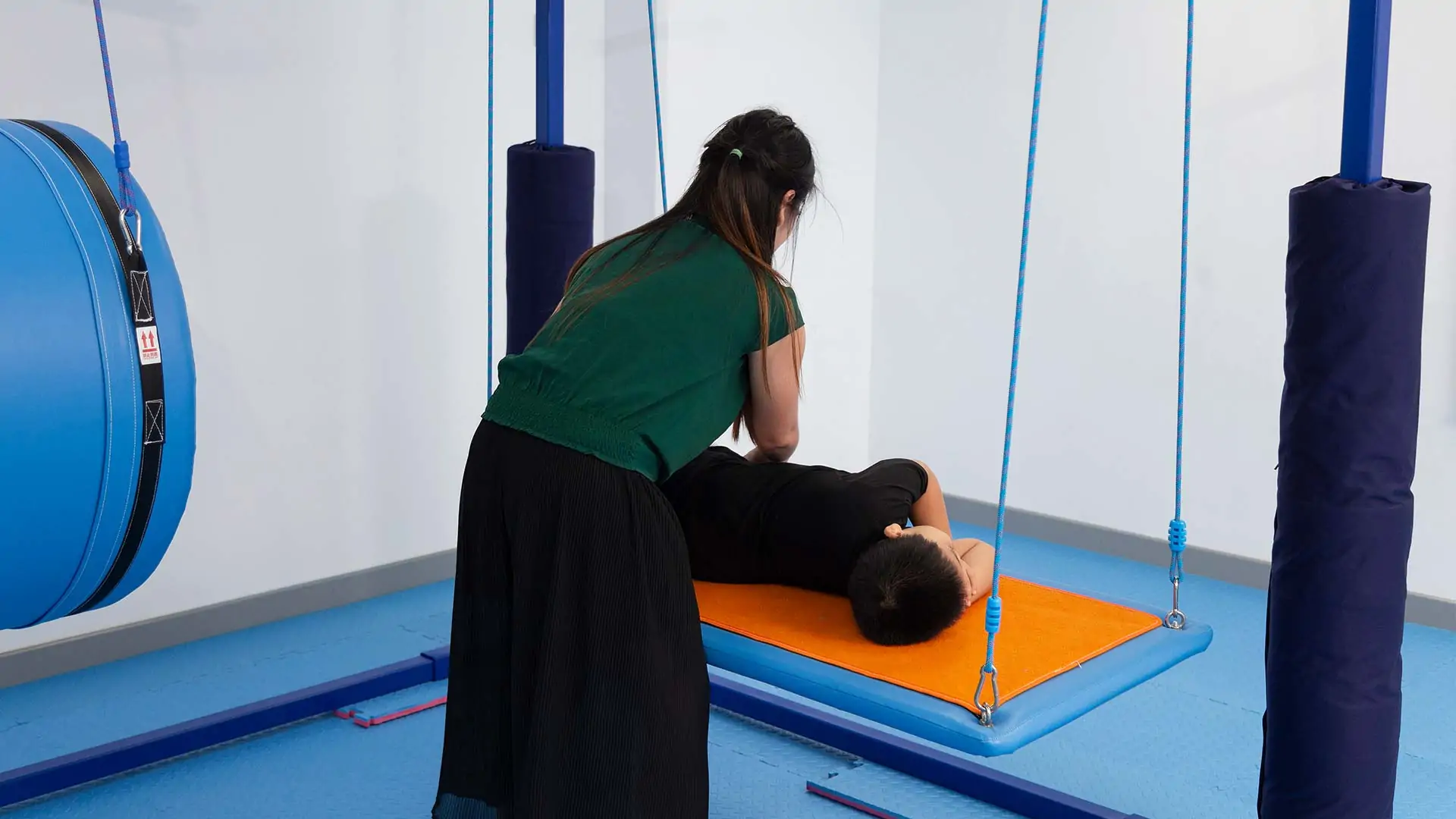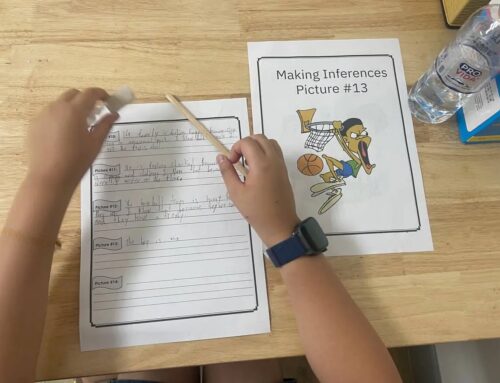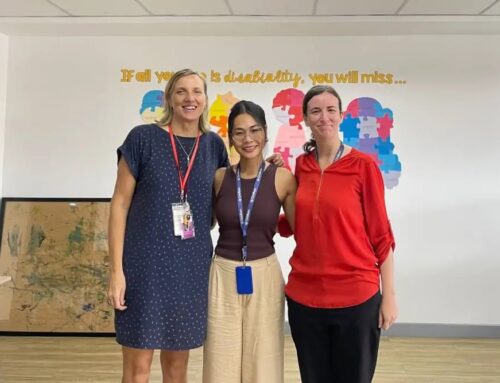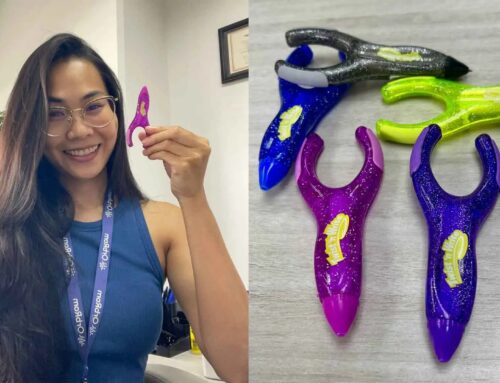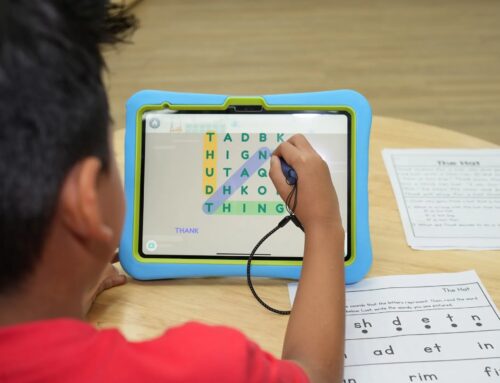[ad_1]
Successful therapy doesn’t end when a child leaves the clinic. In fact, meaningful progress happens when parents and occupational therapists work together toward shared goals. At OrbRom Center in Phnom Penh, we emphasize collaboration between therapists and families to ensure that every child receives consistent, holistic support both at home and during therapy sessions. This partnership not only accelerates development but also helps parents feel empowered and confident in their child’s growth journey.
The Importance of Collaboration
Children with developmental delays, sensory processing challenges, or learning difficulties benefit most when their therapy is reinforced in daily routines. Occupational therapy focuses on developing functional skills—such as dressing, handwriting, focus, and emotional regulation—but these skills must also be practiced at home to become habits.
When parents actively participate in therapy, they:
-
Gain a better understanding of their child’s sensory and behavioral needs
-
Learn strategies to handle daily challenges
-
Build confidence in supporting skill development outside the therapy room
Therapists, on the other hand, gain valuable insight into a child’s environment, routines, and emotional triggers. This open communication helps them design individualized therapy plans that truly meet the family’s needs.
Learn more about how occupational therapy helps children achieve independence through structured collaboration and play-based interventions.
Sharing Goals and Expectations
The first step in building strong collaboration is setting clear, shared goals. During initial sessions, therapists and parents should discuss priorities such as fine motor skills, sensory regulation, or daily living skills.
At OrbRom Center, our therapists take time to listen to parents’ concerns and incorporate their observations into the intervention plan. For example, if a parent notices that their child struggles with transitions between activities, the therapist might introduce visual schedules or sensory tools to help improve self-regulation at both school and home.
Parents are also encouraged to review progress regularly and adjust goals as their child develops new abilities. This dynamic teamwork ensures that therapy stays relevant and effective.
You can read more about how occupational therapy supports developmental milestones in children to see how collaborative planning helps children grow at their own pace.
Communication and Feedback
Consistent communication between parents and therapists is the foundation of success. Regular updates allow parents to stay informed about their child’s progress and practice techniques correctly at home.
Here are effective ways to maintain communication:
-
Weekly check-ins: Discuss what worked and what didn’t during the week
-
Progress journals: Keep simple notes about your child’s responses to certain activities
-
Parent training sessions: Attend coaching or modeling sessions at the therapy center
At OrbRom Center, therapists often demonstrate exercises directly with parents present. This hands-on approach allows families to feel confident replicating strategies in natural settings like playtime, mealtime, or bedtime routines.
Explore our detailed guide on strengthening parent-child interaction through occupational therapy for more ideas on how collaboration can build stronger emotional bonds.
Integrating Therapy into Home Life
Occupational therapy becomes most effective when practiced in real-life contexts. Parents can reinforce therapy goals by integrating therapeutic play and movement into everyday activities.
Examples include:
-
Letting children help with cooking to practice hand strength and sequencing
-
Using obstacle courses or outdoor play to build balance and coordination
-
Encouraging drawing or cutting activities to improve fine motor skills
These fun, engaging activities make therapy feel natural while strengthening parent-child relationships. For parents of children with sensory needs, our article Sensory Tools Every Parent Needs at Home provides simple strategies to promote regulation and focus.
Building a Supportive Partnership
True collaboration goes beyond therapy sessions—it’s about building trust, empathy, and shared learning. Therapists rely on parents’ day-to-day observations, while parents depend on therapists for professional guidance. This mutual respect forms a foundation for long-term success.
At OrbRom Center, we believe parents are an essential part of the therapy team. Through consistent communication, education, and encouragement, we ensure that families in Phnom Penh and across Cambodia feel supported every step of the way.
Families seeking more structured and comprehensive support may benefit from our Special Needs Intensive Intervention Program, which combines therapy sessions with home-based guidance and parent workshops.
Collaboration between occupational therapists and parents is not just beneficial—it’s essential for meaningful progress. By working together, both sides create a consistent environment that helps children develop independence, confidence, and emotional resilience.
At OrbRom Center in Phnom Penh, our therapists are dedicated to building strong partnerships with families to make every child’s therapy journey successful and empowering. Together, we can transform challenges into opportunities for growth and connection.
[ad_2]
Source link
